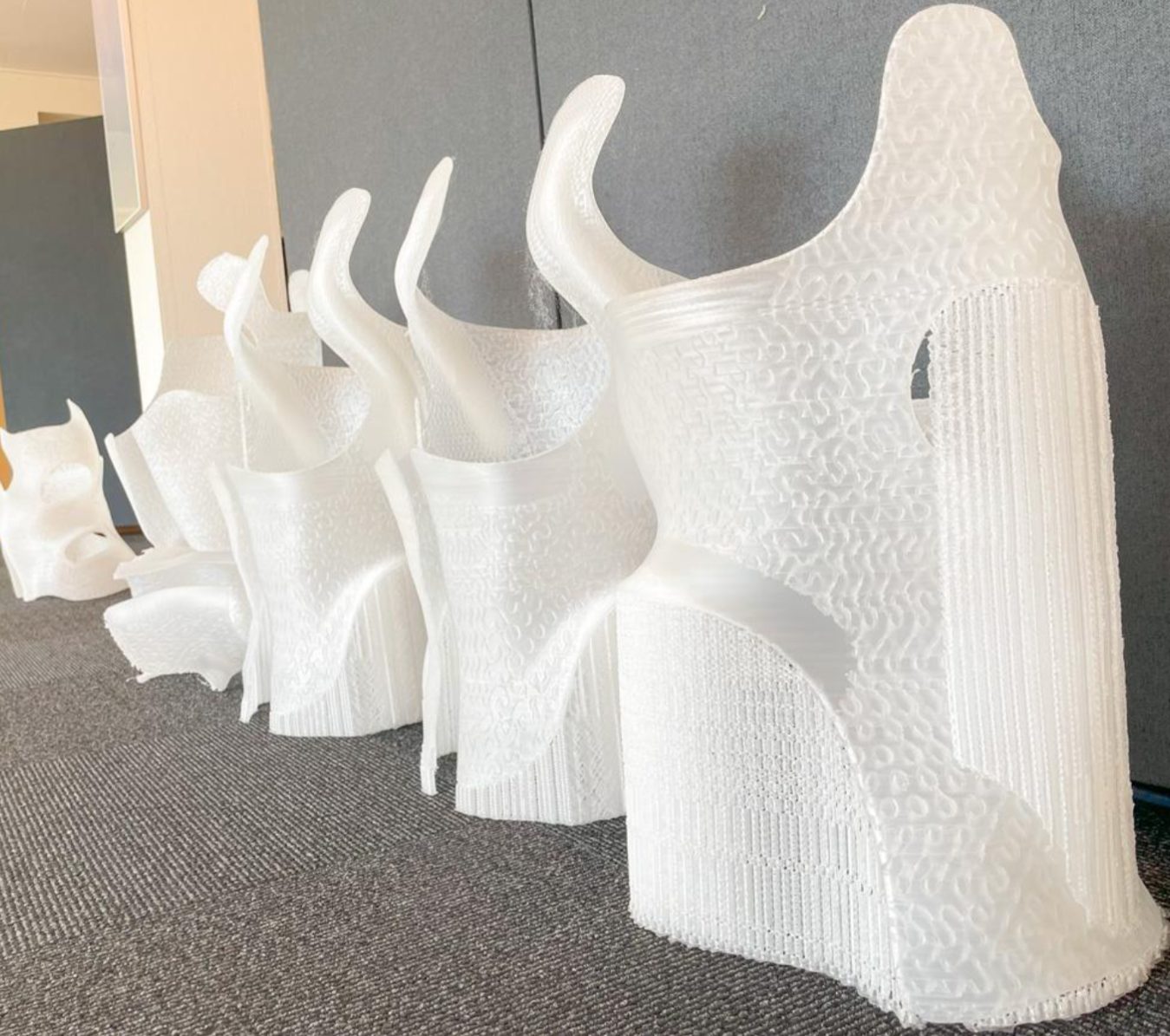Orthopedic corsets have seen significant uptake thanks to 3D printing technology. In particular, the company Create it REAL has made considerable progress with the development of a corset that allows both rigid and flexible zones in one model. However, a key concern for Create it REAL is the sustainability of these products, as their lifespan is often only a few years or months.
The corsets are mainly made of polypropylene, a potentially recyclable material. This is exactly where the TRACKY project comes in, launched by the DREAM program, part of the European Eurocluster initiative. The core objective of DREAM (Digital Resilient Europe for Advanced Manufacturing) is to strengthen the European digital ecosystem in manufacturing.
TRACKY is committed to sustainable manufacturing and aims to revolutionize the production of orthopedic corsets. The focus is to introduce a business model based on the circular economy, thus promoting more sustainable resource management. Specific goals of the project include:
- 3D printing filament recycling: To convert old corset parts into high-quality 3D printing filament.
- Development of a tracking system: A system that collects important information about the recycling stage and material type and integrates it into the 3D file.
- Quality monitoring: monitoring production quality at various sites to ensure recycled materials meet requirements.
The founder and CTO of Create it REAL, Jeremie Gay, explains: “This is entirely new ground. Until now, we have only been recycling polypropylene one time. We are particularly interested in how it behaves after the fourth, fifth, or many more times reuses. Do we need to auto-adjust how we print to maintain the material quality and maximize the times it can be reused? Can we reuse it forever under the right conditions? Can we track those conditions? This is what we want to answer with the TRACKY project.”
Ultimately, TRACKY aims to efficiently track materials and integrate essential data into 3D files. This will not only benefit patients and the medical sector, but also further advance digital technologies such as IoT and system integration. The potential for other sectors, depending on material recovery practices, is also significant.
Subscribe to our Newsletter
3DPresso is a weekly newsletter that links to the most exciting global stories from the 3D printing and additive manufacturing industry.






















